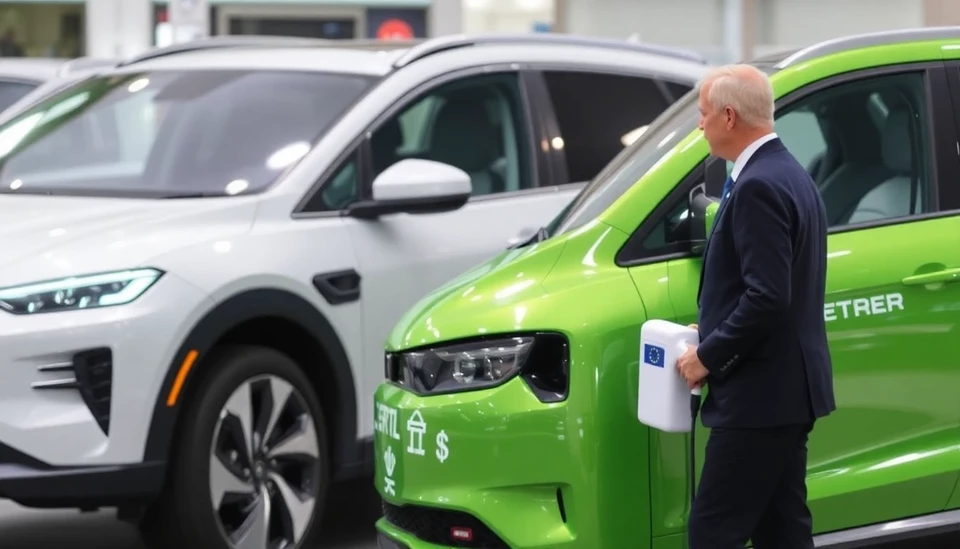
In a bold statement, the European Union’s climate chief expressed optimism about the future of car manufacturers in the rapidly evolving electric vehicle (EV) landscape. As the global market for electric automobiles continues to surge, the official emphasized that adherence to the EU’s stringent climate policies could provide carmakers with a competitive advantage rather than a disadvantage.
The comments come at a time when the auto industry is grappling with the transition from internal combustion engines to electric alternatives, a shift that is not only driven by stringent EU regulations but also by a growing consumer demand for sustainable transportation options. The EU aims to significantly reduce carbon emissions by enhancing the adoption of EVs, which has led to increased investments in the sector.
According to the climate chief, automakers that fully embrace this transition will not only comply with regulatory demands but will also capitalize on the potential economic benefits tied to innovation in EV technology. By investing in electric vehicles, manufacturers can position themselves strategically in a market that is expected to grow exponentially over the next decade.
The official pointed out that the European market is ahead in many respects compared to other regions, thanks to supportive government policies and significant investment in charging infrastructure. With various legislative measures already in place or on the horizon, the EU is setting the pace for global emission reduction initiatives, which are increasingly being mirrored by other regions.
Despite concerns from some industry figures about losing market share to non-European manufacturers, the EU climate chief urged carmakers to view the situation as a unique opportunity. By adopting greener technologies and aligning with sustainability goals, they can strengthen their brands and appeal to a growing base of environmentally-conscious consumers.
Furthermore, the emphasis on innovation is paramount. The EU has pledged to provide necessary funding and support for research and development in the area of electric mobility, ensuring that carmakers have the resources to advance their EV technologies. This commitment is crucial in helping manufacturers overcome the initial hurdles of the transition, such as high production costs and consumer misconceptions about electric vehicles.
As the industry gears up for what is anticipated to be a transformative period, the climate chief's message resonates with a clear call to arms: embrace the change, innovate, and thrive. The EU's vision is not simply about reducing emissions; it aims to create a sustainable automotive ecosystem that benefits both the environment and the economy.
The evolution toward electric vehicles represents a significant shift not just for carmakers but for consumers as well. As awareness around climate change and the importance of sustainability grows, consumers are increasingly leaning toward electric options. The climate chief's firm belief in the potential for growth in the EV market suggests that those who adapt swiftly will not only survive but could also dominate the automotive industry of the future.
As we forge ahead into an era defined by electrification, the message is clear: the EU is committed to making this transition beneficial for all stakeholders involved, particularly the car manufacturers who play a pivotal role in this global race towards sustainability.
In conclusion, the EU’s climate chief is setting a visionary tone that seeks to galvanize manufacturers who might be hesitant about the future. Emphasizing optimism and opportunity, the statement serves to encourage an industry on the brink of fundamental change.
#EU #ClimateChange #ElectricVehicles #Sustainability #CarManufacturers #Innovation #EMobility #GlobalMarket
Author: John Harris




